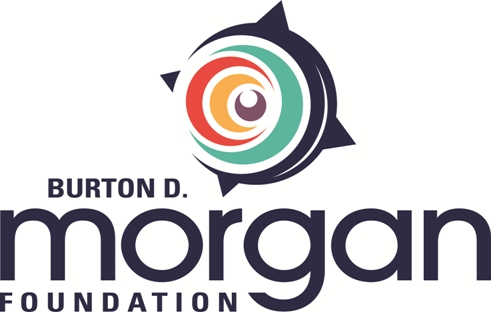
| biomimicry | the design and production of materials, structures, and systems that are modeled after our natural environment (i.e. animals, insects, and plants) | marketing | the action or business of promoting and selling products or services, including market research and advertising | |
| commercial | a television or radio advertisement | model | a non-working representation often used by entrepreneurs to illustrate their product to consumers and investors | |
| competitors | businesses that sell similar products and are in economic competition with each other | pain point | a specific problem that prospective customers of your business are experiencing | |
| consumer | a person who purchases goods and services for personal use | parameter | a limit or boundary that defines the scope of a particular process or activity | |
| copyright | the exclusive legal right, given to an originator or an assignee to print, publish, perform, film, or record literary, artistic, or musical material, and to authorize others to do the same | patent | a government authority or license conferring a right or title for a set period, especially the sole right to exclude others from making, using, or selling an invention | |
| cost | an amount that has to be paid or spent to buy or obtain something | pathos | an emotional appeal; the use of words and imagery that induce certain feelings or emotions (such as happiness, fear, gratitude, excitement, hunger, pain, etc.) | |
| demand | the quantity of a good or service that consumers are willing and able to purchase at various prices during a given period of time | pitch | a form of words used when trying to persuade someone to buy or accept something | |
| engineer | a skillful contriver or originator of something | price point | the suggested cost of a product | |
| engineering, chemical | the branch of engineering concerned with the design and operation of industrial chemical plants | producer | a person, company, or country that makes or supplies goods for sale | |
| engineering, civil | the branch of engineering that deals with the design and maintenance of roads, bridges, dams, and similar structures | profit | a financial gain, especially the difference between the amount earned and the amount spent in buying, operating, or producing a good or service | |
| engineering, electrical | the branch of engineering that deals with the technology of electricity, especially the design and application of circuitry and equipment for power generation and distribution | profit margin | the amount by which revenue (total sales) exceeds the cost to produce and sell a good or service | |
| engineering, mechanical | the branch of engineering dealing with the design, construction, and use of machines | profit motive | an incentive for entrepreneurs that often drives their innovation and supports the financial risks they take | |
| entrepreneur | a person who organizes and operates a business or businesses, taking on greater than normal financial risks in order to do so | prototype | a first, typical or preliminary model of something, especially a machine, from which other forms are developed or copied | |
| ethos | an ethical appeal; someone you trust is trying to convince you | resources | inputs that are used in creating and producing goods or services; economic resources can be divided into human resources, such as labor and management, and nonhuman resources, such as land, capital goods, financial resources, and technology | |
| financing | the act of borrowing a loan from a bank or investor by entrepreneurs in order to start a business | revenue | the money that businesses collect for sales and investments minus all costs | |
| function | an activity or purpose natural to or intended for a person or thing | risk | the possibility of unwanted harm, loss (including financial), and danger resulting from an action or transaction | |
| intellectual property | a work or invention that is the result of creativity, such as a manuscript or a design, to which one has rights and for which one may apply for a patent, copyright, trademark, etc. | startup | a newly established business based on a new product | |
| jingle | a short and catchy song that is written to help sell a product | supply | the quantity of a good or service that producers are willing and able to make available to consumers in the marketplace during a specific time | |
| Law of Demand | states that there exists an inverse (opposite) relationship between price and quantity of units demanded; specifically, as the price of a good goes up, the quantity demanded goes down | sustainability | the ability to be maintained at a certain rate or level to promote balance and good health | |
| Law of Supply | states that other factors remaining constant, there exists a direct (similar) relationship between price and quantity of units supplied; specifically, as the price of a good goes up, the quantity supplied goes up. | target market | a particular group of consumers at which a product or service is aimed | |
| logo | a symbol or other visual adopted by a business or organization to identify and make distinct its products, uniform, vehicles, etc. | trademark | a symbol, word, or words legally registered or established by use as representing a company or product | |
| logos | a logical appeal; aims to convince you through logic or reason that something is better, more reliable, honest, and/or credible | venture capitalist | a person who invests in other businesses | |
| market equilibrium | where the supply and demand curves intersect, which represents an ideal price point | wholesale cost | the cost of raw materials required to make a product | |
| marketability | the ability of a commodity to be sold or marketed; attractiveness to potential employers or clients |
|
|
Produced with funds provided by Burton D. Morgan Foundation |
|
*Think Tank to Shark Tank: From Engineering to Entrepreneurship is in no way affiliated with, associated with, or endorsed by Sony Corporation or Metro-Goldwyn-Mayer Studios Inc.


